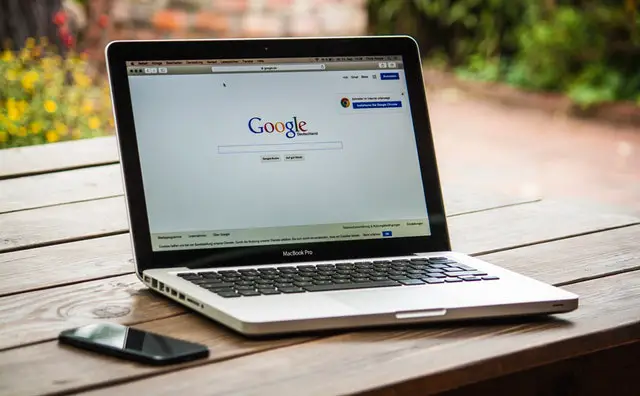
How Do I Know if My VPN Is Working?
Posted Sept. 1, 2018, 2:47 p.m. by JonathanOne of the most effective tools within the realm of online security is a virtual private network, or VPN as they are more commonly known.
They are used frequently whenever users wish to change or hide their IP address when using the internet.
One of the reasons to do so is to access content that has been restricted to a specific country or to cover your tracks when browsing.

Why Use a VPN?
VPNs are ideal for encrypting your data, enhancing your online security, and as mentioned above, masking your IP address.
An IP address is designated to you by your internet service provider (ISP).
As you surf the web it can be used to identify who your internet service provider is, and the location from which you have accessed the internet.
You may have visited a website where a message comes up which states "We are sorry, but this content is not available in your country."
This happens a lot on video websites such as YouTube, where some videos can be assigned by their creator to be shown only in the country where the video is relevant.
To get around country restrictions, many people use a VPN, which allows you to select a server in another country.
When it's active, as you move around the internet, it will appear that you are doing so from the country you have selected rather than the actual country you live in.

How to Check if Your IP Address is Being Leaked
This all seems straightforward, and usually, it is, but there are scenarios where your actual IP address can be identified or leaked, even if you are using a VPN.
If you are concerned that your IP address is being leaked, you can check to see if it is or not.
First, in Google, type in 'What is my IP address,' and you will either see it displayed or have several sites appear in the search results which you can use.
Once you have your actual IP address, write it down, and then log in to your VPN.
Select a server in another country, and check that you have been connected.
Once connected, go to the IP address finder service you used a moment ago, and see what IP address is displayed.
If your VPN is working correctly, it should be a different one from your actual IP address, and it should show that it is from a server in the country which you selected.
If it is still showing your actual IP address, then you have an IP address leak.
This can happen in several ways, but here are two of the most likely and how to resolve them.

1. IP Address Leaking from Your VPN
If you only use the DNS server which your VPN provides you, there is a possibility that your privacy is not 100% safe.
A VPN that does not offer or use dedicated servers carries with it a massive risk for its users.
Your VPN may also leak your IP address if it does not support IPv6.
This protocol is used to generate IP addresses across the world and replaced the older protocol, IPv4. This was running out of addresses due to the enormous increases in internet users. Thus IPv6 was introduced.
If your VPN is still using IPv4 when you visit any website using the newer protocol (which most now do) your IP address will be unencrypted and visible when visiting most websites.
Preventing IP Leakage from Your VPN
There are some simple checks you can make with your VPN provider or service to prevent IP address leakage.
The first is only to use a VPN service which provides you with a dedicated server and which also has DNS leak prevention incorporated. You should also make sure that the VPN you select is using the IPv6 protocol.

2. IP Leaks from Your Browser
Most modern browsers have a built-in feature called Web Real-Time Communication (WebRTC).
This function allows your browser to run applications such as file sharing, screen sharing, voice chat and video conferencing.
The benefits of WebRTC for these services is that there is no need to install additional plugins or extensions on your browsers.
The problem regarding IP leakage is that WebRTC employs code which external services and websites can use to obtain your real IP address simply by sending a request using a small piece of JavaScript code. T
his code is contained within the source code of the website you are visiting and will not only reveal your VPN IP address but also expose your real IP address, and thus your location, too.
Prevent IP Leakage from Your Browser
To prevent this sort of leak, there are two actions that are both relatively simple to do.
- The first is to set the rules in your firewall to block any requests from outside your VPN connection. This stops the JavaScript requests from reaching your browser.
- The second way is to adjust the privacy settings in your browser so that WebRTC is disabled. Each browser will do this slightly different so check the online instructions for the browser you use.
And Finally… Checking that Your IP Leak Has Been Fixed
Once you have carried out the relevant fixes or changes to your VPN, go back to the 'What is my IP address' process again and see if it is now changing once you connect via your VPN.

Best VPNs of 2018
VPN services represent an investment for many people, so of course, you'd like yours to work well.
It would be a huge disappointment to find out that your "trusted" VPN leaks your IP address!
That is why you need a great - if possible, the best VPN.
Among the thousands of VPN providers out there, we have handpicked the best VPNs of 2018. These are the VPNs we tried and tested, and are completely trustworthy.
Check it out if you're looking for an excellent VPN. Plus, if you sign up through our list, you're guaranteed to have a cool offer. We're nice like that.
